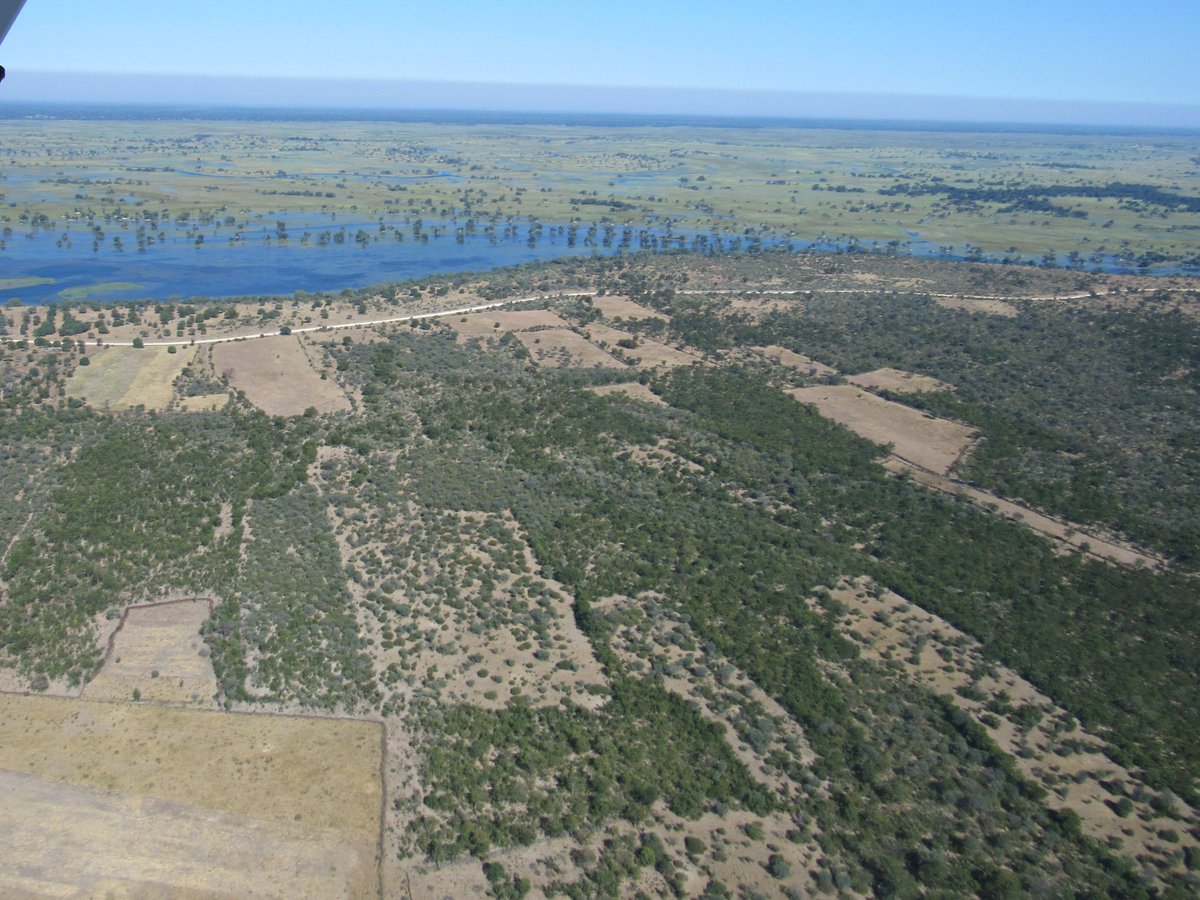
Excited to share a new paper from my PhD out in Biological Conservation!
Does higher probability of wildlife movement (as modeled thru connectivity) correlate with patterns of conflict? 🐘🇧🇼🌱
Available here (free thru August) authors.elsevier.com/a/1bKC71R%7EeI…. Highlights thread... 1/7
Does higher probability of wildlife movement (as modeled thru connectivity) correlate with patterns of conflict? 🐘🇧🇼🌱
Available here (free thru August) authors.elsevier.com/a/1bKC71R%7EeI…. Highlights thread... 1/7
We know when people farm near high-use elephant pathways more crop-raiding incidents occur there. Does this pattern hold even beyond paths, where areas with higher connectivity/higher probability of movement across the landscape see more conflict? 2/7 

We modeled connectivity based on GPS collar data from 15 elephants in the Western Okavango Panhandle of Botswana (data from @TheECOEXISTproj) using #Circuitscape. (all eles collared with appropriate permits/approvals from @BWGovernment and @TAMU) 3/7 

We found that current density class was positively and significantly correlated with the number of elephant crop raiding incidents (2010-2016).
That means more conflict incidents were reported in areas with higher connectivity. 4/7
That means more conflict incidents were reported in areas with higher connectivity. 4/7

This nicely supports @Osipova_Ludmila et al's 2018 paper that predicted human-elephant conflict would increase in certain areas if fences shifted patterns of elephant movement & connectivity. doi.org/10.1111/1365-2… 5/7 

Over the course of one season, connectivity didn't correlate w/whether a field was raided/not, or raid frequency. This could indicate more proximate factors impact raiding in the short-term, while landscape-driven elephant movement may lead to long-term crop-raiding patterns. 6/7 

This project was possible due to cooperation with the Botswana Dept of Wildlife & National Parks, in particular Andrew Sejamitlwa; Samokokore Kerumotsemang (pictured); the villages, dikgosi, & enumerators from Samochima, Nxamasere, Xhaoga, Kajaja, Ikoga, Sepopa, Etsha 6 & 13. 7/7 

@ABStamu @TAMUEEB @AniMove #Circuitscape @BWGovernment @ConservHerpsLab @AmandaStronza #BiologicalConservation @TheECOEXISTproj #connectivity #wildlifemovement #humanelephantconflict #Botswana #Okavango #humanwildlifeconflict 

• • •
Missing some Tweet in this thread? You can try to
force a refresh



